Austria will host Eurovision 2026. And on top of its heavy-duty preparations for that, broadcaster ORF still has to select its own entry for the contest next year. While opening the submissions for the country’s new selection show Vienna Calling, the Austrian broadcaster announced it will allow AI-enriched entries.
ORF will be hosting its first selection show since 2016. Back then, Zoë won with her French-language pop effort “Loin d’ici”, which quickly became a fan favourite. Following her success, however, the Austrians have relied heavily on internal selections — and with mixed success. However, JJ brought the country its second victory in eleven years – making Austria only the third country that has won more than once since the turn of the century.
Austria to select its Eurovision 2026 entry through a new selection
A jury and the public will decide Austria’s entry in Vienna in a televised selection on 20 February 2026. Artists have until 15 October 2025 to apply.
Programme director Stefanie Groiss-Horowitz said to ORF:
“The 2026 Eurovision Song Contest in Vienna is the biggest event to be held in Austria next year. Our stated goal is to involve and inspire the entire country. Now that the question of where the Eurovision Song Contest will take place has been clarified, it’s time to decide who will represent Austria. We want to make this decision together with our audience – everyone can have their say, and all artists can apply to participate starting now.”
Fans quickly read a rather interesting point among the basic selection rules. ORF wrote: “The song must represent a creative work that was for the most part developed without the support of AI”. Especially the German words “zum Hauptteil” (“for the most part”) raised a few eyebrows. After all, most creative competition strictly outlaw any use of artificial intelligence.
AI and Eurovision: still no regulation to this day
To this day, the Eurovision Song Contest has still not updated its official rules with regards to the topic of AI. With that in mind, it is in fact possible to artificial intelligence in the competition.
The main rule remains that a work “must be original and must not have been released and/or publicly performed in part or in full”. The boundaries between an original song and an unoriginal work remain gray.
In 2018, Sanremo fans discovered that Ermal Meta & Fabrizio Moro‘s “Non mi avete fatto niente” was in fact a reworked version of the song “Silenzio” – a rejected San Remo bid in 2016 which had been publicly performed by its original singers Ambra Calvani & Gabriele de Pascali. This led to RAI suspending Ermal and Fabrizio before subsequently forgiving the Sanremo favourites. The EBU also accepted the song.
Three years later, Ukraine’s Go_A initially wanted to perform a a different version of their song “SHUM” at Eurovision. However, that version heavily relied of existing Ukrainian folk songs. As a result of some outrage, the band subsequently changed the song’s lyrics and melody for a final version that would come fifth at Eurovision 2021.
With regards to AI, the EBU allowed Spanish host broadcaster RTVE to use AI to create postcards for Junior Eurovision last year. On top of that, in 2020, the EBU promoted the AI Song Contest, a technological initiative. However, AI for songwriting remains a rather new topic.
No Eurovision composer to this date has admitted to using AI in their work. However, in San Marino, an AI song took part in the selection earlier this year. On top of that, several entries submitted to the later cancelled Moldovan selection seemed to be written by AI. With Austria starting to accept AI-enriched submissions, it seems that the door is open to AI at Eurovision.
What do you think? Should AI-enriched entries be able to compete at Eurovision? Who do you want to represent Austria at Eurovision 2026? Let us know in the comments down below!
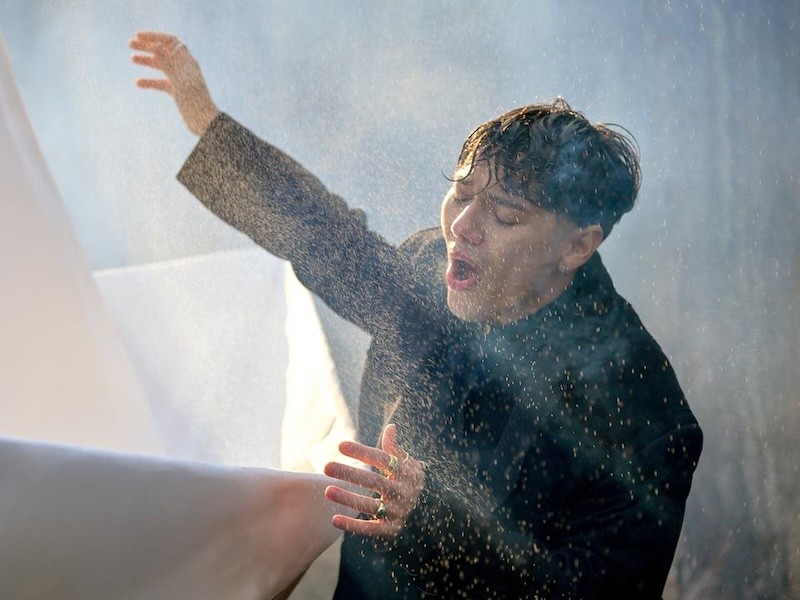
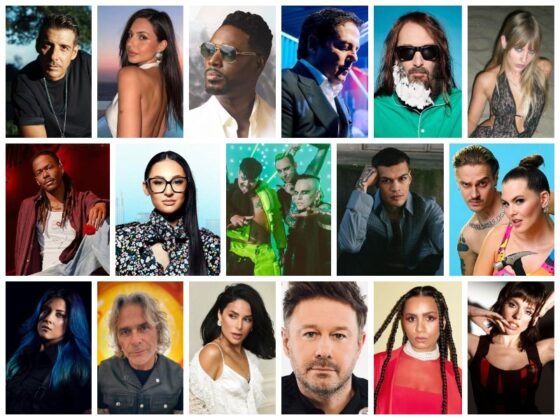
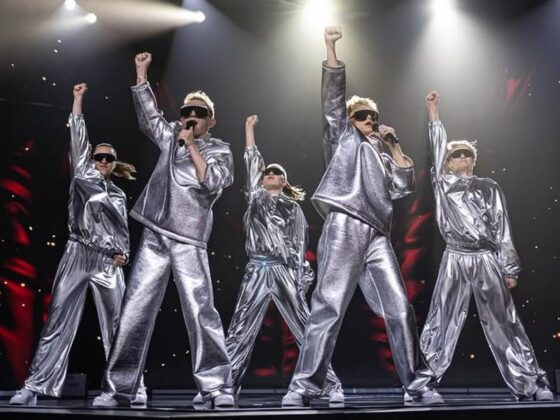

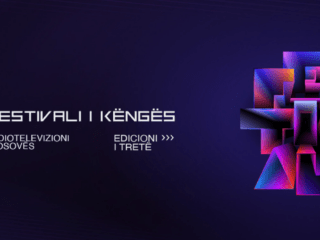





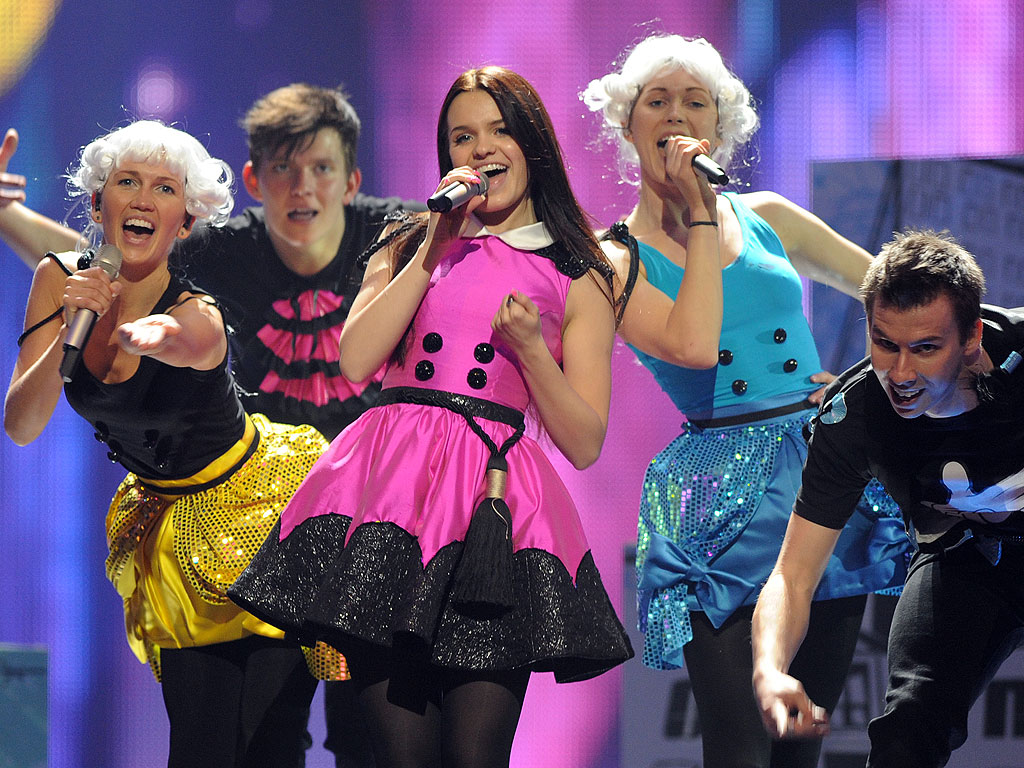
Italian music is made of AI music recently, it’s no surprise other countries come late as usual. In Italy everything is moving to future, while others won’t. Amazing.
AI song = 0 points
AI will never produce a Eurovision hit
I can’t believe I have to say this in 2025, keep art human.
Somehow, I understand the EBU not openly blocking AI, because it’s not directly a problem yet. On top of that, it is hard to really track whether a song has been written or enriched by AI. Courtney Act pointed out on our Instagram that many songwriters use AI techniques to help editing and producing their songs at the minute. And who knows? Maybe several entries were already enriched by AI in the past few years without us knowing. The EBU has never opposed new techonologies. But in a way, it feels so wrong. Eurovision is really centered around the craft… Read more »
Uh oh
Any song I find out used AI in any way will not a get a single vote from me – or any additional listens from the moment I find out about the AI. Period. Even if it was my favorite song before that. (In that case I’ll just be doubly disappointed and angry at he singer and the country)
don’t discriminate against AI though
I heard The Code a few days ago about it is difficult to tell it apart from Wasted Love. Croatia, France or Ireland should have won in 2024, Estonia or Italy this year.
I’m sure everything will be okAI.
My creAItivity won’t be affected.
Come what mAI, I’ll still plAI my song
Just me and mAIy piano.
Polar bears
This is terrible. Eurovision keeps going downhill.
not the first and it won’t be the last…
so, the last alpine glacier incoming?
AI should be strictly prohibited at every level in every area. The end.
Fck AI
Not a fan of this move Austria sorry, it must be the opposite and you should forbid the use of AI totally. If a song or parts of a song are made by AI it should be absolutely mentioned, people have the right to know. Moreover one of the jury criteria in Eurovision is composition and originality of the song, so what? In the case of an AI song going in Eurovision the jury will award a computer for its beautiful composition? It makes no sense. We already experienced the use of AI for visuals in jesc 2024 and it… Read more »